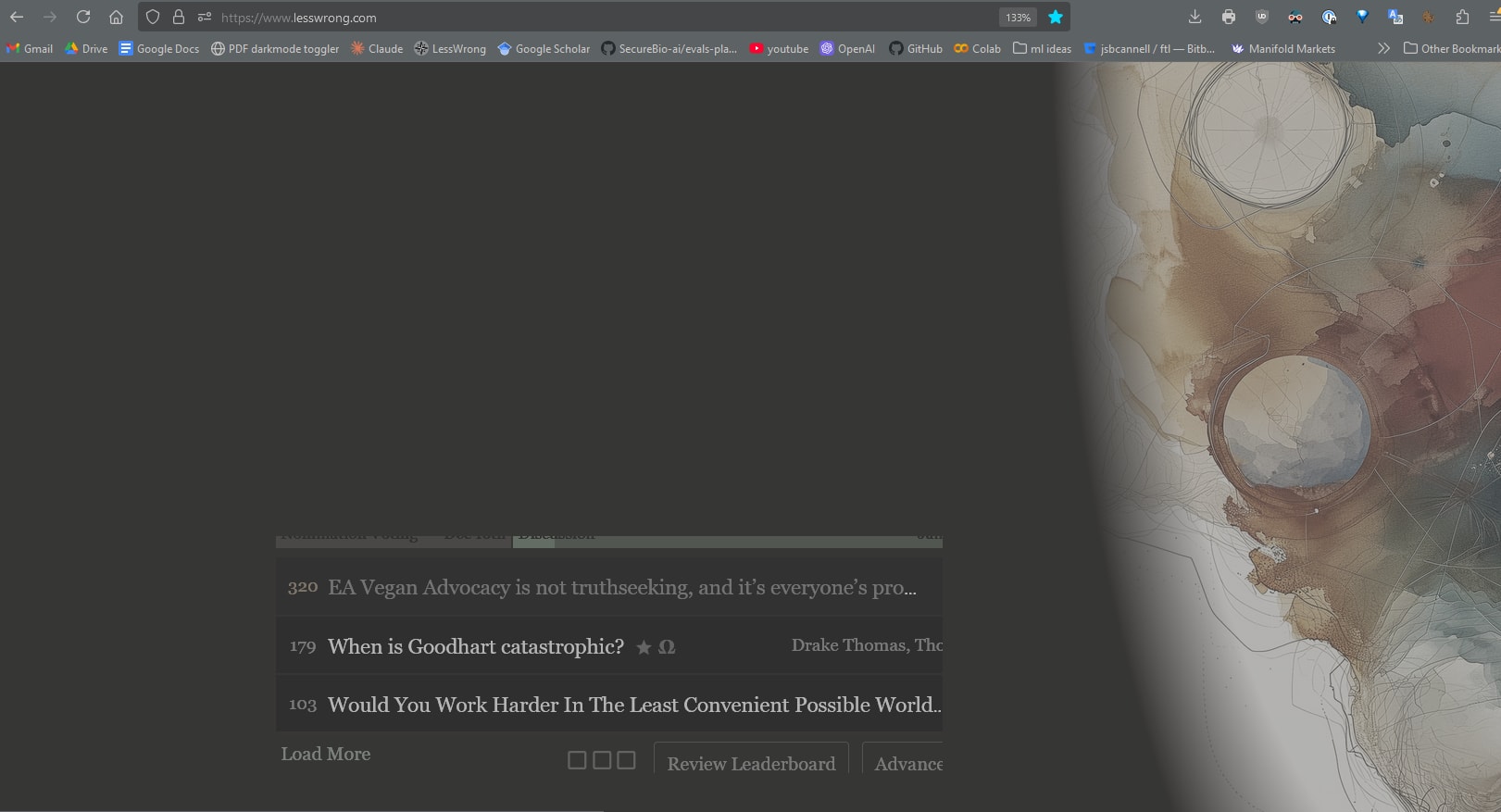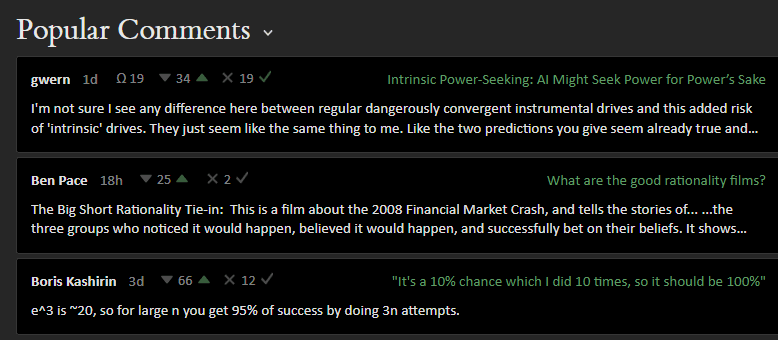If it’s worth saying, but not worth its own post, here's a place to put it.
If you are new to LessWrong, here's the place to introduce yourself. Personal stories, anecdotes, or just general comments on how you found us and what you hope to get from the site and community are invited. This is also the place to discuss feature requests and other ideas you have for the site, if you don't want to write a full top-level post.
If you're new to the community, you can start reading the Highlights from the Sequences, a collection of posts about the core ideas of LessWrong.
If you want to explore the community more, I recommend reading the Library, checking recent Curated posts, seeing if there are any meetups in your area, and checking out the Getting Started section of the LessWrong FAQ. If you want to orient to the content on the site, you can also check out the Concepts section.
The Open Thread tag is here. The Open Thread sequence is here.





Another thing that I've noticed is that after submitting a comment, sometimes the comment appears in the list of comments, but also the text remains in the editing textbox. This leads to sometimes thinking the first submit didn't work, and submitting again, and thus double-posting the same comment.
Other times, the text does correctly get removed from the textbox after hitting submit and the submitted comment appearing, but the page continues to think that you have unsubmitted text and to warn you about this when you try to navigate away. Again, a confusing experience that can lead to double-posting.